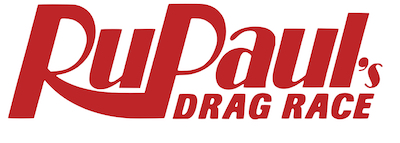What can leaders in trade associations learn about leadership from RuPaul’s Drag Race?

There are lessons to be learned from one of the world's most influential drag queens, writes Enrique Velázquez, director general at Association for Consumer Credit Information Suppliers (ACCIS).

If you are not yet familiar with the American TV show that brings drag culture to the mainstream, RuPaul's Drag Race is a reality competition where multiple drag queens face off against one another for the title of ‘America’s Next Drag Superstar’. The objective of the show is to identify individuals who can influence mainstream culture – not a given, considering the fact that they come from a LGBT background and that drag is perceived as superficial. In order to win, contestants need to emerge victorious from a variety of challenges, including makeovers and impersonations.
The show has been praised extensively, not only because it makes great entertainment but also because it showcases RuPaul’s leadership skills and tactics to improve the show’s reach and popularity. In my experience, when trade associations hire for leadership roles, they look for people with qualities that do resemble those of RuPaul, widely considered the most commercially successful drag queen of all time and one of the most influential people in the world in 2017, according to Time magazine.
So, why is RuPaul and his show so inspirational?
The winner of RuPaul's Drag Race (10 seasons and counting) is a contestant who possesses the right combination of ‘charisma, uniqueness, nerve and talent’. These attributes are recalled throughout each episode and have to be put into practice in the weekly challenges and runway themes. Contestants that do not implement them are penalised by the panel of judges. The path to victory is properly signposted.
Have your goals well defined and understood
In my career, I have encountered associations that often have vague values and unclear or too many end goals. Reasons for that vary but a common denominator is the absence of sufficiently string top-down dynamics. As RuPaul does, the Director General (DG) needs to clearly establish what defines success for the association, what are the values guiding the association and what are the concrete steps that will be taken to be successful.
In essence, a DG has to deliver a vision for the association. A vision ensures that the association can more effectively represent, promote, protect and preserve the common interests of its members. It also lets other individuals and organisations understand who the organisation is and what it stands for, today and tomorrow. Finally, the vision should help keep members bound together by a common purpose, in particular those represented at Board level.
Don’t shy away from taking risks
Establishing a vision is, by definition, a risky business. The future holds no guarantees. In the show, before the judges give their final critiques, RuPaul announces that several of the contestants are "safe". While being safe means here not going home, it also means not winning challenges and, consequently, the title. DG are at the top spot of the association and have, therefore, a natural inclination to preserve their position. Associations, however, have to adapt and move on.
A leader should not be afraid to take risks. The DG has a responsibility to try innovative, out-of-the-box approaches to channel and enact change.
Communicate constantly
In the show, every episode and every event within each episode has an associated hashtag, introduced by RuPaul himself. In fact, everything about the show becomes a short story that is made for sharing. Information is tweetable and gif-able. Fans, contestants and suppliers interact on social media. From a communications angle, the show is a platform making a group conversation possible.
Too often, associations convey or receive one-way communications. This has to do with a concept of service to members that puts the onus on reporting, debriefing and feedback elements. In my view, a better service to members is to get conversations going. This is easier said than done, particularly if the association consists of fiercely competing corporates. Against that background, the role of the DG is crucial. DGs must be in constant communication (a two-way street) with members. In order to do that, it falls on the DG to ensure that the various communications channels remain active, particularly mobile ones, and that the association creates attractive content worth talking about.
Love yourself first
 Each episode of the show ends with RuPaul reciting his signature phrase: “If you can’t love yourself, how in the hell are you gonna love anybody else?” a reminder that self-love and self-confidence is the foundation upon which we can achieve our goals.
Each episode of the show ends with RuPaul reciting his signature phrase: “If you can’t love yourself, how in the hell are you gonna love anybody else?” a reminder that self-love and self-confidence is the foundation upon which we can achieve our goals.
Being at the top of a trade association means being the visible face of an industry. Members, Board, President… may look at you in a judgmental way. And for good reason: the DG is the final person responsible in the association. This can feel stressful. And lonely.
In order to avoid any potential damage to the industry’s reputation, the DG often takes himself or herself too seriously. There is the perception that any admission of weakness will be picked up by opponents (such as policy-makers, other associations) and held against not the DG, but the industry he or she represents. The fear of retaliation makes the contributions of these DGs come across as stiff and less genuine.
While self-sufficiency and professional competence are important traits in a leadership position, DGs are entitled to use a helping hand sometimes. It is important for the DG to build a support network (with professional contacts, mentors, others DGs) when assistance is needed, and to be able to have a comfort zone where industry topics can be discussed without suffering the stigma of ignorance. Having recently moved to an industry that I am not so familiar with, this kind of support has been invaluable.
Manage well the ups, downs and farewells
RuPaul's Drag Race takes place in a competitive environment where drama breaks out and contestants often resort to ‘passive-aggressive’ behaviour and razor-sharp wit for managing tensions ‘diplomatically’, without any further verbal escalation.
DGs have to take an awful lot of decisions about hiring, procurement, budgeting, to name a few. In that context, tensions can run high and disagreements can erupt, within the team or with members. Conflict is, at the end of the day, a part of life. However, the outcome depends entirely on how one can handle it.
A good leader that works to build one-on-one associations as well as foster healthy relationships among the community can, in these situations, turn to trusted colleagues for support, comfort and encouragement. That would allow him or her to stay focused.
Eventually, a DG may be asked to "sashay away". If and when that situation arises, it is important to handle it with ‘grace’ and ‘dignity’. Departure presents opportunities to build or mend relationships in a more authentic and genuine way. It is really a small world we live in. Possessing some of RuPaul’s traits, along with others like honesty, good judgment and integrity will bring the next leadership opportunity much closer.
Enrique Velázquez is Director General of the Brussels-based Association of Consumer Credit Information Suppliers (ACCIS) since June 2017. He worked for the European Banking Federation (EBF) for over ten years, the last five as Head of Public Affairs. Prior to joining EBF, Enrique was an Officer at the Spanish Securities Markets Supervisor (CNMV) in Madrid for nearly five years. He was also an Officer at the Paris-based Committee for European Securities Regulators (CESR). He started his professional activity in education as a post-graduate level junior lecturer.
Enrique holds a double degree in European Business Studies from the University of Humberside (United Kingdom) and in Law, from the Universidad Autónoma, in Madrid.

Other Articles
About Us
Supported by the Union of International Associations (UIA), the International Association of Professional Congress Organisers (IAPCO) and the Interel Group, the global public affairs and association management consultancy, Headquarters Magazines serve the needs of international associations organising worldwide congresses.















